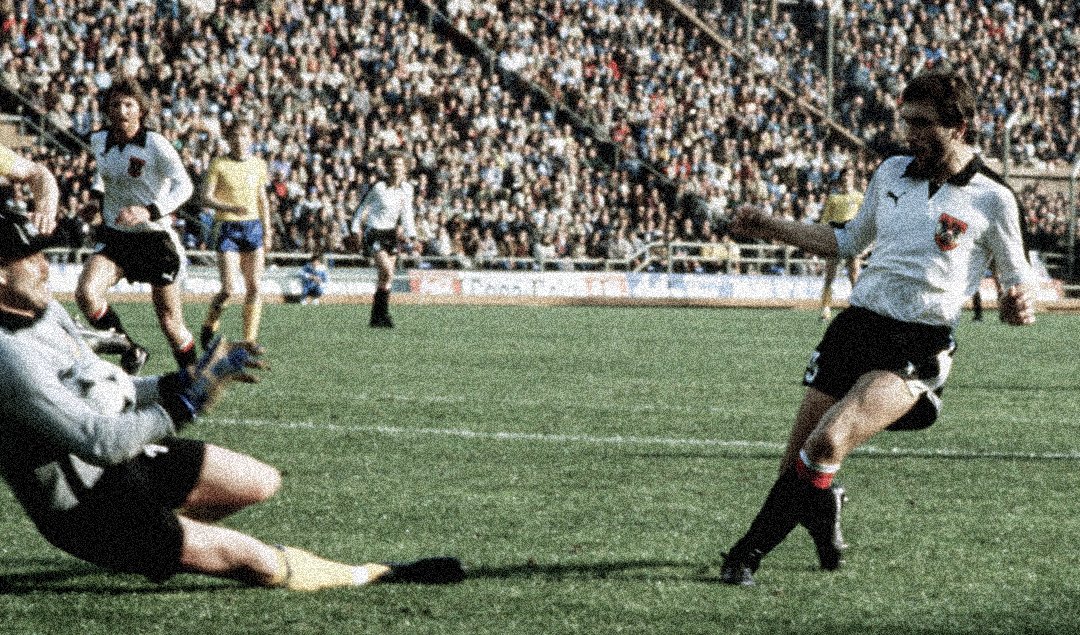Austria’s 1978 Odyssey: Chapter 1 – Road to Argentina
Austrian football has a rich history that goes back decades – from the Wunderteam of the 1930s to finishing third at the 1954 World Cup. Yet the 1978 World Cup in Argentina is fondly etched into the hearts of Austrian fans – a last hurrah where they made their mark on the world stage. Their road to Argentina starts back to 1976 when Helmut Senekowitsch took over as manager of the national team.
Senekowitsch’s main objective was to reach the 1978 World Cup for the first time in 20 years. He was confident he could succeed where others had failed. Austria’s World Cup qualifying group consisted of Turkey, East Germany and Malta. Their opponents posed far less of a daunting task than in previous editions: only East Germany had participated in a World Cup.
Furthermore, Austria had a promising team with a strong spine of players. Friedrich Koncilia had been Austria’s starting goalkeeper since making his international debut in 1970. At the heart of the defence was Bruno Pezzey and alongside him was the experienced sweeper Erich Obermayer who made his league debut for Austria Vienna in 1971 at the age of just 18. The midfield was anchored by Herbert Prohaska whose exquisite passing range and footballing IQ made him an icon of Austria Vienna.
Austria’s main strength lay in their corps of strikers – Hans Krankl, Walter Schachner and Wilhelm Kreuz. All three players complimented each other well. Schachner had the youthful exuberance of pace. Wilhelm Kreuz was the wily veteran that played his club football in the Netherlands with Feyenoord. Hans Krankl was a prolific goalscorer in the Austrian top flight that terrorised defenders at will.
The national side possessed a few wise heads that provided much needed experience. Senekowitsch knew they possessed vital qualities ranging from leadership, guidance and reassurance to younger members of the squad. Players like captain Robert Sara and Josef Hickersberger had years of experience playing for their country. Senekowitsch used these assets to whip his players into shape for the World Cup qualifiers.
ROAD TO ARGENTINA
Austria’s qualifying campaign began in December 1976 at Malta. Their stubbornness initially frustrated the Austrians, but their dogged resistance was broken by Hans Krankl, who scored the only goal of the game. The next two games in April 1977 were at home to Turkey and Malta – Austria winning 1-0 and 9-0 respectively.
Austria now faced their sternest test in playing East Germany back to back in the space of three weeks. Both matches in autumn 1977 produced 1-1 draws in Vienna and Leipzig respectively. Avoiding defeat meant Austria now topped their group with one game remaining and victory against Turkey in Izmir would seal World Cup qualification.
Senekowitsch had instilled discipline and composure into his players throughout the qualifiers. It showed against the Turks where Austria displayed resoluteness in such an intimidating atmosphere. The deadlock was broken in the second half through Herbert Prohaska. The disciplined Austrians held on to beat Turkey and qualify for their first World Cup in 20 years.
The statistics highlighted Austria’s development under Senekowitsch during the qualifiers. Austria scored 14 goals in six matches yet scoring nine past Malta does skewer the figures. More impressively, the defence conceded just two goals in six games, keeping four clean sheets.
All eyes turned to the World Cup draw to determine Austria’s opponents in Argentina. The fates appeared unkind for Austria were drawn in a tough group with Brazil, Spain and Sweden. Many observers felt it would be challenging for them to get out of the first group stage.
Brazil’s manager Claudio Coutinho had taken on the job the previous year and the World Cup would be his first tournament. A large proportion of the squad had less than 20 caps yet had promising talent like Zico. There was still experience to guide the young team in goalkeeper Leão and Roberto Rivelino.
Sweden had no concerns about inexperience under manager Georg Ericsson who had produced some of Europe’s best players in the 1970s. One example was Ronnie Hellström – just fresh from enjoying one of his best seasons at FC Kaiserslautern. The 29 year old would win the Guldbollen (Sweden’s best footballer) later that year.
Spain was going through notable upheavals off the pitch. The country had been transitioning from autocracy to democracy since General Franco’s death in November 1975. Political parties and trade unions were now legalised. Free and fair elections were held in 1977 for the first time in 41 years. Making the World Cup after a 12 year absence embodied the time of change in Spain.
La Roja had been managed by ex-Barcelona striker Ladislao Kubala since 1969 and captained by Real Madrid veteran Pirri. Their strengths lay in attack and their forwards were in good form during the domestic season. Argentina’s Mario Kempes won the Pichichi with 28 goals for Valencia but the next four highest scorers were in Spain’s World Cup squad: Real Madrid’s Santillana with 24 goals, Atletico Madrid’s Rubén Cano scored 21, Athletic Bilbao’s Dani had 20 and Espanyol’s Marañón with 18.
Austria would see the worth of Spain’s much vaunted attack in their World Cup opener on the 3rd June in Buenos Aires at the Estadio José Amalfitiani.
By: Yousef Teclab
Photo: Gabriel Fraga
